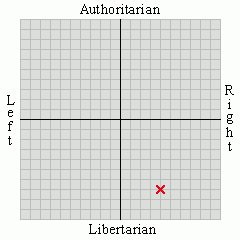SMOKERS are about to be confronted with the nation's biggest anti-tobacco campaign, a $61 million advertising blitz linking smoker's cough directly with lung cancer.I'll leave that to others who spend more time and effort debunking anti-tobacco spin but it sounds like bullshit to me. Lots of smokers I've known have smokers cough and they don't all get lung cancer. Yet you want us to believe there's a direct link? Yeah, sure, with bells on. Look, it's obvious smoking is not a healthy pastime, but you liberty loathing anti-smoking industry is increasingly straining the bounds of credibility lately and this seems just as suspect.
Cancer Council chief executive Ian Olver supported the government's move to follow up on its previous campaign: ''Every cigarette is doing you damage.''Are you sure? Because if the experience in Ireland and elsewhere is anything to go by you get to a point where people stop buying duty paid cigs and start buying illegally supplied tobacco. Are you really driving down the smoking rate or are you just seeing the inevitable reduction in legitimate sales that are a consequence of driving up the black market business?
''We know that the most effective way to drive down the smoking rate is to increase the tax on cigarettes and to combine it with multiple strategies such as restrictions in advertising and strong public health messages,'' Mr Olver said.
And the ads? Oh, please.
But the director of Sydney advertising agency IMC, Michael Cahill, said the effectiveness of health scare campaigns was at breaking point.Smokers don't care. Can't you understand this? They know but they like it and that's the end of it. Those like me who stop liking it will stop smoking, those who still like it probably will not. Some may try, possibly spending their hard earned on the quitting industry's stuff instead, but I reckon most will go back to it eventually. And of course this suits everybody. It suits the tobacco industry who have lost a customer only temporarily. It suits the quitting industry who have gained a customer who with luck will spend a lot of money on patches, gums and potions because he's being made to feel that he ought to give up when his heart isn't in it, and it suits the government who sacrifice a little tax revenue on tobacco for some on company taxes paid by the quitting industry instead while exercising a little more influence over the personal lives of citizens.
''I think there is ample evidence when these sorts of ads come on television people switch off and think about other things,'' Mr Cahill said. ''The biggest risk is that the message will be ignored.''
Oh, but Angry, you may be asking, surely you're being paranoid? If that's what the government were doing then why would they throw $61 million at an anti-smoking campaign, especially at a time when there's talk of a one off special levy to pay for the flood repairs?
That's a fair question, and the answer to part of it is that I'm pretty sure the government really does believe that everything it does is for the best, and that includes getting in bed with the quitting industry to help everyone live longer, healthier and more fulfilling lives. Which is all very noble but unfortunately must come at the cost of reduced personal freedom and property rights, which the government either overlooks or doesn't care about. But the second part of the answer is that the government needs money to do all these things for the benefit, real or imagined, of citizens, and that often leaves it on the horns of a dilemma. It wants you to stop smoking but needs the tax revenue from the cigarettes you buy. A profitable quitting industry helps with this but the quitting industry has a similar problem: if everyone quits smoking they don't need the patches and the gum and the pills and the hypnowibbly stuff anymore.* Success for both the government will actually hurt it - and hit all us non-smokers in the wallet too because we'll all have to make up the tax shortfall, and you're a fool if you don't believe it - while success for the quitting industry will bring about its own demise. So what can they do apart from not try too hard?
By their deeds shall ye know them, I said at the top, so let's look at their deeds. If they really wanted everyone to stop they could simple make it illegal, yet they don't. Instead the government is going to spend $61 million this year trying to make smokers stop. A lot of money by many standards, but not when you put it up against the amount of money it makes from tax and duties, which for 2011 is projected to be $5.4 billion. Yes, for those of you that are quick at mental arithmetic the effort at trying to get everyone to quit is a smidge over 1% of the money the government get if they all carry on.
So do they really want everyone to quit or is it just an excuse to meddle, and to get people used to them meddling, and then to carry on meddling pretty much indefinitely, all for the good of citizens of course (and in the misguided and delusional belief that the government can possibly know what's good for each citizen)? As the Yanks like to say, you do the maths.
* Anyone tried the quitting industry's stuff? Was it any good? Again I can only speak for myself but back in the days when I smoked and felt I ought to stop (as distinct from didn't want to carry on anymore) I tried some of them and they were all ultimately a failure. "Requires willpower" seems to be a common advert rider for quitting products, but what nobody ever told me was that when I no longer wanted to smoke I would naturally find willpower in such abundance that the quitting products were quite unnecessary.


















